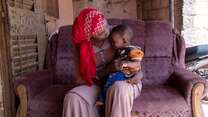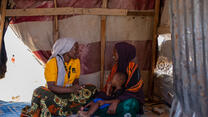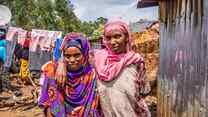Multi-year and flexible humanitarian funding supports better outcomes and delivers efficiencies. Evidence of the benefits of multi-year flexible funding has steadily grown in recent years; numerous studies - published by think tanks, humanitarian organisations and UN Agencies, and commissioned by donors - point to effectiveness and efficiency gains in programme quality. Bilateral donors have also raised their multi-year contributions, in part thanks to the Grand Bargain commitment to increase multi-year humanitarian planning and funding, but the needle has not moved far enough. As the COVID-19 pandemic threatens to increase the cost of humanitarian response and shrink aid budgets, the case for better value for money is more relevant than ever.
This report by International Rescue Committee, with support from Development Initiatives, builds on the already strong evidence base for multi-year flexible funding. A comparative analysis of two cash programmes in Somalia funded by DFID and Sida, which draws on data collected using the Systematic Cost Analysis (SCAN) tool developed by IRC with Save the Children and Mercy Corps, provides preliminary indications of quantifiable cost efficiency gains of multi-year funding. And three case studies—from Central African Republic, Cameroon and Côte d’Ivoire—reveal the qualitative benefits of multi-year, flexible financing.
The following key findings emerge:
- Multi-year funding can lead to notable cost-efficiency gains.
- Multi-year funding can make programme delivery more effective.
- Cross-cutting issues, such as gender equality and the empowerment of women and girls, benefit from multi-year financing.
- Gains from multi-year funding are highest when they benefit from flexibility as well.
- Effective multi-year programming requires investments of time and resources to establish means of working, shifting organisational practices and culture, and building trust with public donors and private funding partners.
There is no excuse to delay aid reform any further. To better serve our clients, particularly in light of the deepening needs produced by the COVID-19 crisis, the humanitarian community must do better—and faster.
Donors and UN agencies should therefore:
- Agree to set a target at this year’s annual Grand Bargain meeting for more multi-year flexible funding to frontline responders and joint problem-solve between donors and UN agencies to overcome political and technical barriers to effective pass-through mechanisms by the five-year Grand Bargain anniversary in 2021;
- Provide more accurate and timely data on the multi-year, flexible funding cascading to frontline implementers; and
- Pilot innovative approaches on multi-year, flexible funding and take them to scale.



